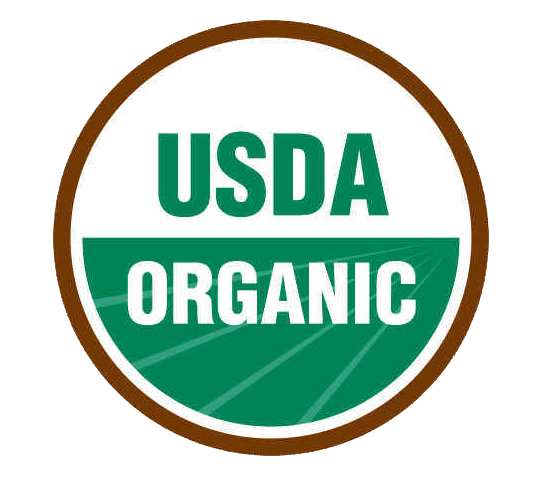Wednesday, April 14, 2021 - You see the word "organic" thrown around everywhere these days — whether it's on food, clothing, beauty products, and more. But what does it actually mean to call something organic? The U.S. Department of Agriculture National Organic Standards Board defines the term as this:
"Organic" is a labeling term that denotes products produced under the authority of the Organic Foods Production Act. The principal guidelines for organic production are to use materials and practices that enhance the ecological balance of natural systems and that integrate the parts of the farming system into an ecological whole.
To label a food as organic, it must meet the guidelines set by the USDA, including:
- Not using prohibited substances (most synthetic fertilizers and pesticides) for three years prior to harvest
- Not using genetically modified organisms (GMOs)
- Raising animals in living conditions accommodating their natural behaviors (like grazing on pasture), feeding them 100% organic food, and not administering antibiotics or hormones
- Omitting artificial preservatives, colors, or flavors from multi-ingredient, processed foods with some exceptions, like baking soda in baked goods
Organic agricultural production still uses pesticides and herbicides that USDA's organic certification standards have okayed. Just because something is labeled "organic" does not mean that no pesticides or herbicides were used. It simply means that the ones applied met the USDA's production standards for the term.
The definition of organic also limits the use of "genetically modified organisms." GMO crops have been genetically altered to withstand the application of herbicides and pesticides — chemicals that protect harvests from viruses and bugs. The introduction of GMOs into the food supply sparked a debate over their health and environmental implications. Anything bearing the USDA Organic Seal is automatically non-GMO.
Contrary to popular belief, organic food relates back to agricultural production, not a specific nutrition- or health-related guideline. For a product to carry the USDA organic label, a third party must verify at least 95% of the ingredients as organic. The phrase "made with organic ingredients" means at least 70% of the ingredients used counted as organic.
Despite controversial headlines about this labeling claim, the agricultural practice used to produce food does not determine how nutritious it is for you, nor does it directly impact your state of health. Case in point: Organic cane sugar is still sugar. The nutrients you'll find within the food are what, over time, predominantly affect your health — not the growing methods used to make it. Also, organic products will cost more than their non-organic counterparts, which is a critical consideration for most of us on a budget.
Does organic mean healthy? Short answer? No. Growing methods do not universally make foods better or worse for you nutritionally. This is especially true when you consider eating a balanced diet overall. For example, USDA Organic beef is grass-fed, which implies that you'll find slightly more omega-3 fatty acids in it compared to conventionally raised cattle. But if you're also regularly consuming seafood, then you're already likely getting the omega-3's you need.
Learn More at the Original Article Here
